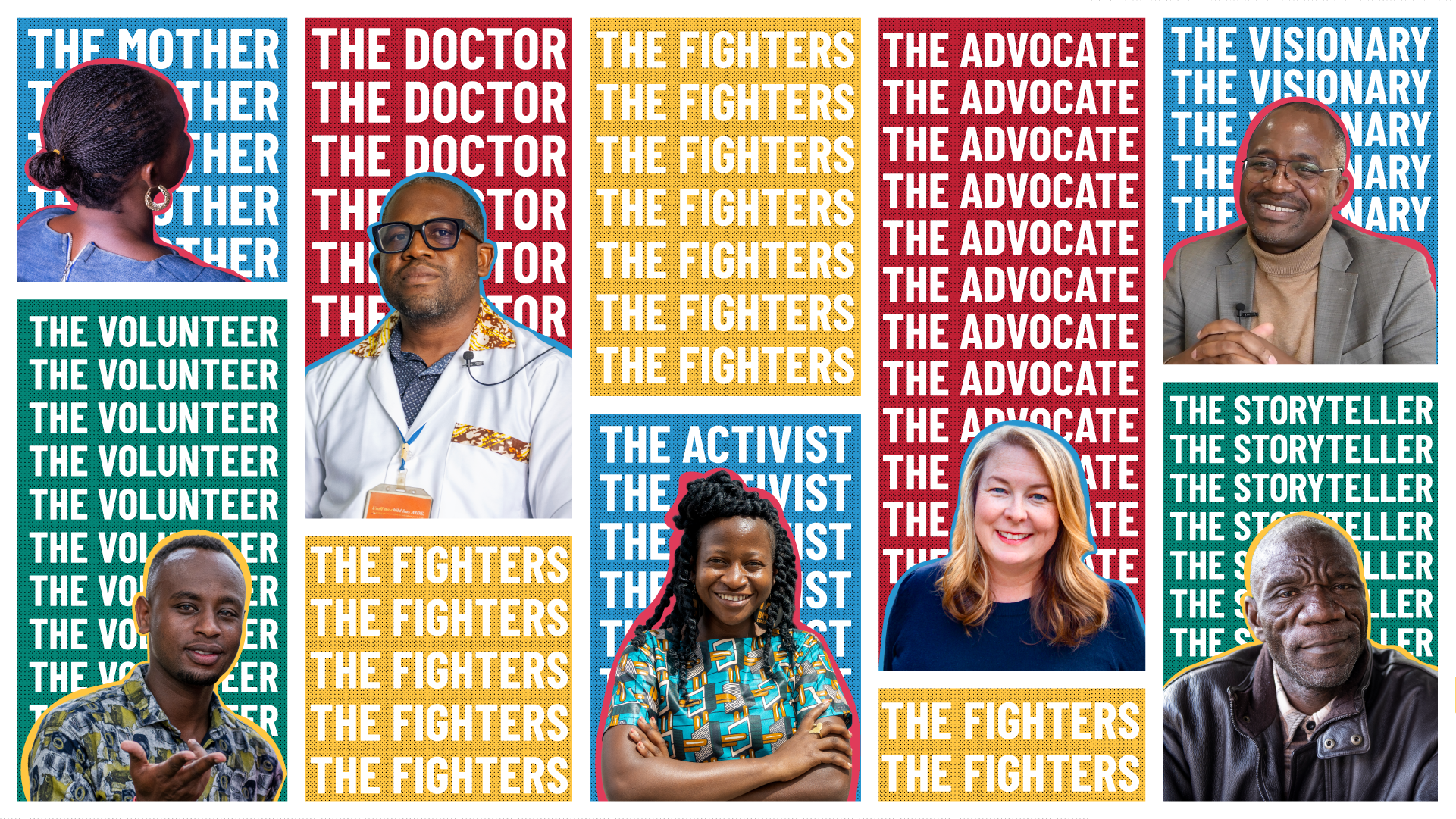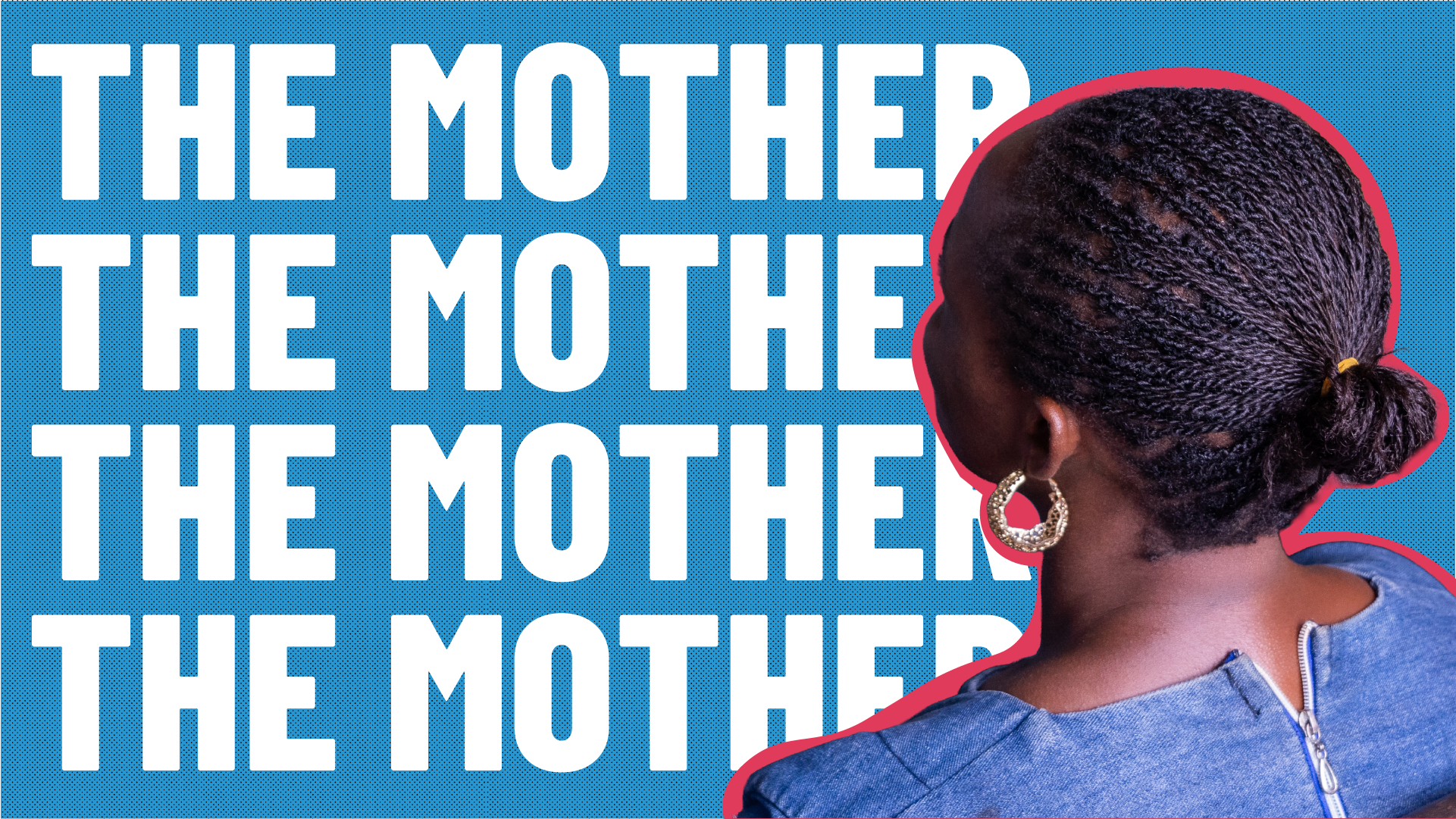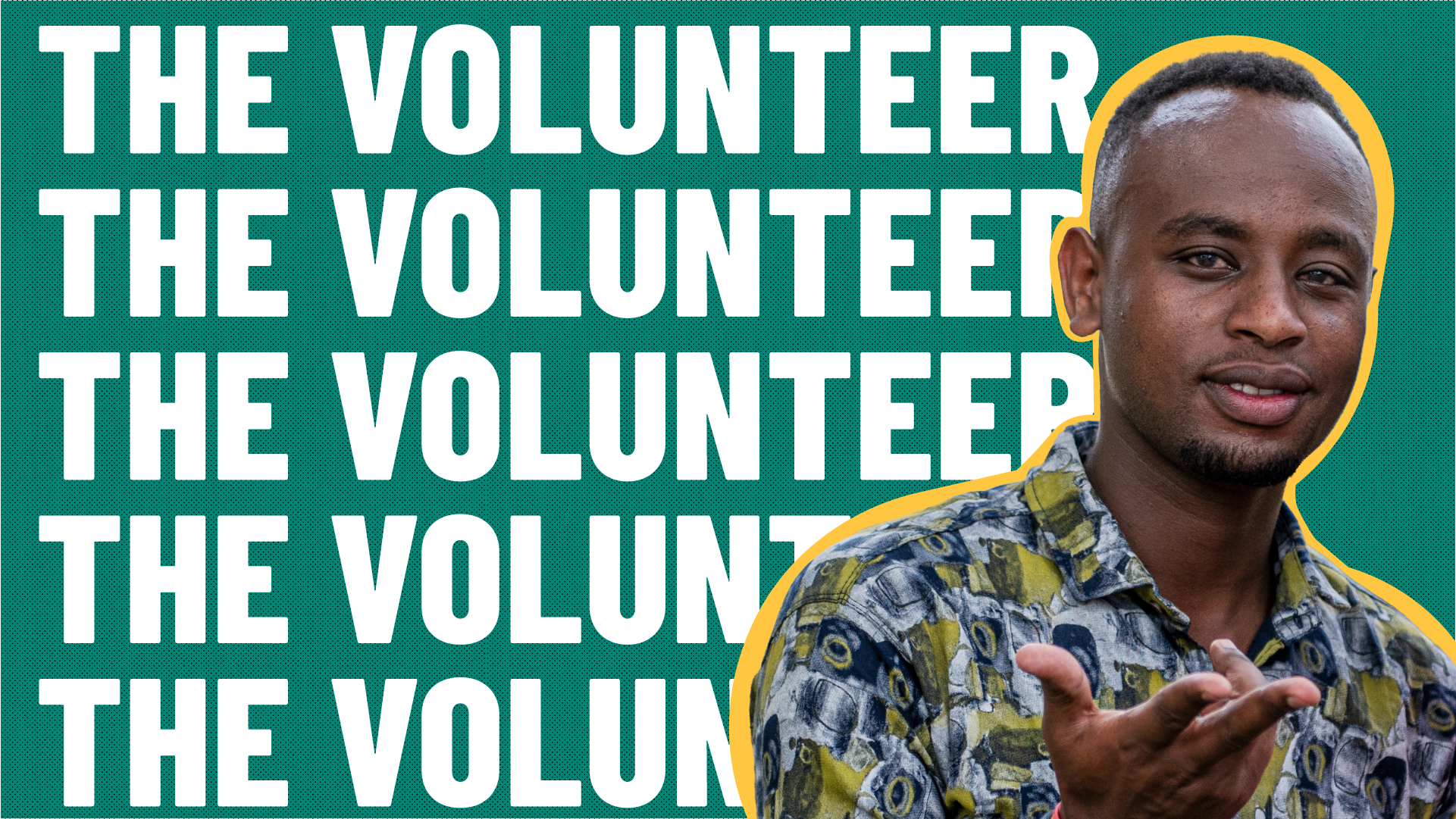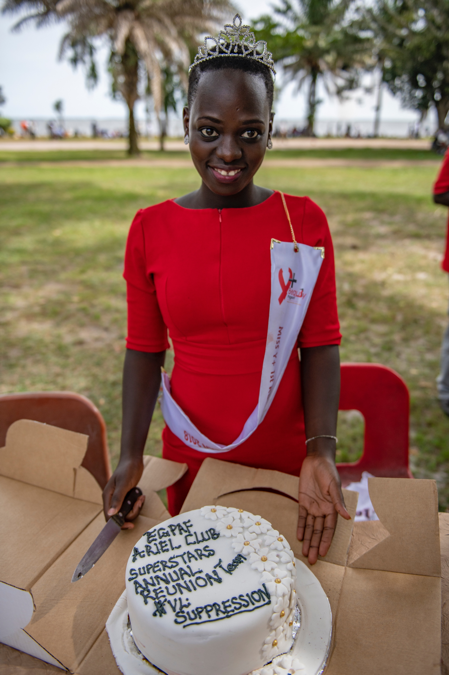
Hajarah Asiimwe, a 19-year-old student living in western Uganda, knows all about stigma.
Last year, she lost a good friend who was living with HIV. He stopped taking his medication because he feared stigma about his status—and because of that fear, he died. Another HIV-positive friend passed away after her father, fearing stigma from the community, locked her in a small house and would not allow her to get lifesaving HIV treatment.
Hajarah —who has been living with HIV since birth—has fought her own battle with stigma.
“I call it my dark times,” she says. “I was stigmatized at school, at home, even in the community. I would pass by someone and they would say, ‘That girl has slim’”—the slang term for AIDS.
“When you are in school is when it is worse. Some girls in primary [school] knew my status. So whenever I went to talk to a guy, the girls would go to him and say, ‘She has HIV, why are you wasting your time on her?’”
“In your family, they’re telling you that you are useless. Then you go to the counselor, and the counselor is saying that if you don’t want to take medicines, ‘It’s your life. No one cares.’”
I learned to be alone. When they went for lunch I stayed in the classroom. No one knew what I was going through. It reached the extent of not caring about anything. I stopped taking my medicine.
“So I learned to be alone. When they went for lunch I stayed in the classroom. No one knew what I was going through. It reached the extent of not caring about anything. I stopped taking my medicine. Then I got a very bad rash. Good thing I’m a Muslim—and I could hide it behind a veil.”
So Hajarah hid and waited to die.
Then she met Brian Ahimbisibwe—a peer educator living with HIV and an EGPAF youth ambassador—who told her that he takes the same medication as she does and has a suppressed viral load, meaning that HIV is undetectable in his body as long as he adheres to treatment.
“She was almost on the verge of suicide,” says Brian. “So we introduced her to a support group, and we regularly checked that she was taking her medicine, and we made home visits. After six months, we learned that her viral load was going down.”
We introduced her to a support group, we regularly checked that she was taking her medicine, and we made home visits. After six months, we learned that her viral load was going down.
“That’s when I got the hope,” says Hajarah.
Brian had connected Hajarah with an Ariel Club, named in honor of the daughter of Elizabeth Glaser who died from AIDS-related causes. The club gives children and adolescents living with HIV psychosocial support. They learn from each other and support each other while having fun.
“All those things we go through—lying, defaulting on medicine, not caring about life—when you get to share that story with your peers, you no longer feel alone,” says Hajarah.
“Then I began to see a bigger picture. I started to think that it’s time to adhere to my medication and suppress my HIV so that I can’t transmit it. I had hope of becoming like that person who reached out to [help] me.”
In fact, Hajarah was inspired to become a role model herself: “I worked as a volunteer peer educator at Ariel Clubs. I would sensitize people [teach them about HIV and how to live with it]. I would give people confidence.”
As Hajarah grew older, she joined other young adults who had “graduated” from Ariel Clubs and formed a nationwide support group called the Ariel Superstars. Through the Superstars, she learned of a beauty pageant for young people living with HIV. Organized by the Uganda Network of Young People Living with HIV/AIDS (UNYPA), the Y+ contest aims to end stigma and discrimination around HIV. The 2018 theme was “Beauty with Zero Discrimination.”
“So I got inspired,” says Hajarah. “I had a goal. I represented EGPAF and became the 2018 first runner up in the Western Region. Then I went to the finals. Though I didn’t become the national ‘Miss,’ I learned a lot.”
“UNPYA gave me a platform. Now I’m going to advocate against transactional sex, which is common in the Southwestern region. Forty-year-old men are giving gifts to young girls in exchange for sex. Many of those men are HIV-positive, so they are infecting them. I’m going to fight against that. That will be my campaign of 2019.”
I told my grandmother that…she should not be surprised to see me in the newspapers. I said, ‘I’m going to fight for change.’ She was like, ‘Ah, I’ve given you a go-ahead. Go do it my girl.’
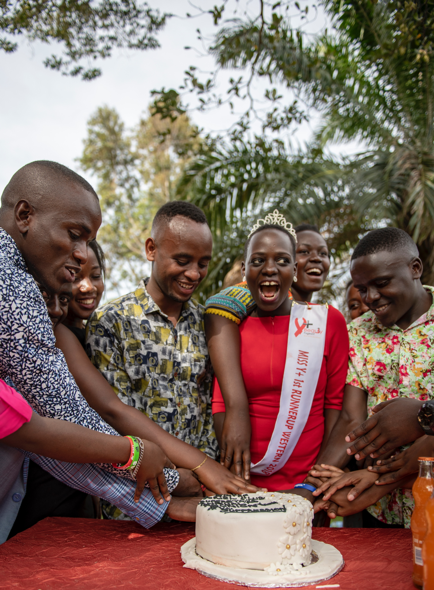
“In my own family, I taught them about HIV. I even told my grandmother that I am going to be a ‘Miss’ and that she should not be surprised to see me in the newspapers. I said, ‘I’m going to fight for change.’ She was like, ‘Ah, I’ve given you a go-ahead. Go do it, my girl.’”
Harajah says her journey has inspired her to make a difference in the lives of other youth in similar circumstances.
“I got involved in this because I believed in myself that I can change and make a difference in young people living with HIV,” says Hajarah. “Some can be like me—a ‘Miss.’ Everyone can have a bright future. We should be allowed to study like others. We should be allowed to dance with others. There’s no reason to discriminate against someone who can dance. Everyone can do that.”
“Now we will lead an AIDS-free generation,” says Hajarah as she adjusts her sash.




